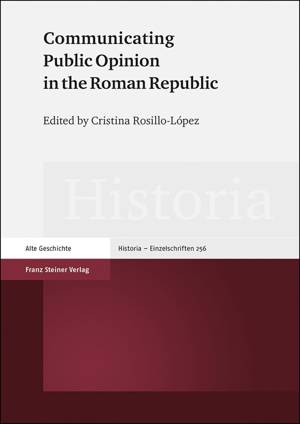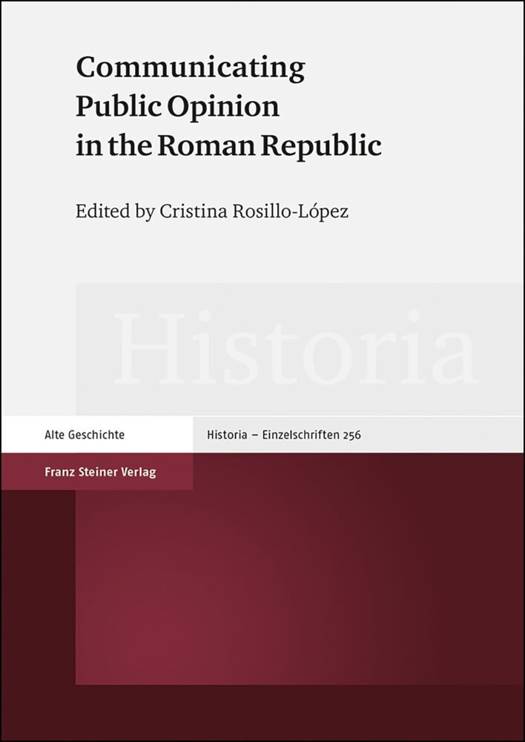
- Afhalen na 1 uur in een winkel met voorraad
- Gratis thuislevering in België vanaf € 30
- Ruim aanbod met 7 miljoen producten
- Afhalen na 1 uur in een winkel met voorraad
- Gratis thuislevering in België vanaf € 30
- Ruim aanbod met 7 miljoen producten
Zoeken
Communicating Public Opinion in the Roman Republic
€ 73,95
+ 147 punten
Omschrijving
From assemblies to courts of justice, from the Senate to the battlefield, from Rome to the provinces: public opinion could vary and take many guises. Roman politicians were aware of its existence and influence, and engaged with it. This book offers a study of public opinion in the Roman Republic, with an emphasis from the 3rd to 1st centuries BC. It focusses on four main issues: nature and components of public opinion; public opinion in relation to military and administrative questions; the interaction between public opinion and public dialogue and, finally, the transmission of public opinion. It furthermore asks the following question: Who was the populus Romanus? How did public opinion influence specific political or military decisions? Can Habermas' view of public opinion be applied to the Roman Republic? How was the rhetoric of fear applied to public opinion? Drawing on the more recent interpretations of Roman Republic, this volume studies the mechanisms that make public opinion and politics work at many different levels. It provides an engaging view on political communication and the interaction between the elite and the people.
Specificaties
Betrokkenen
- Uitgeverij:
Inhoud
- Aantal bladzijden:
- 304
- Taal:
- Engels
- Reeks:
- Reeksnummer:
- nr. 256
Eigenschappen
- Productcode (EAN):
- 9783515121729
- Verschijningsdatum:
- 1/04/2019
- Uitvoering:
- Hardcover
- Formaat:
- Genaaid
- Afmetingen:
- 170 mm x 239 mm
- Gewicht:
- 6529 g

Alleen bij Standaard Boekhandel
+ 147 punten op je klantenkaart van Standaard Boekhandel
Beoordelingen
We publiceren alleen reviews die voldoen aan de voorwaarden voor reviews. Bekijk onze voorwaarden voor reviews.










